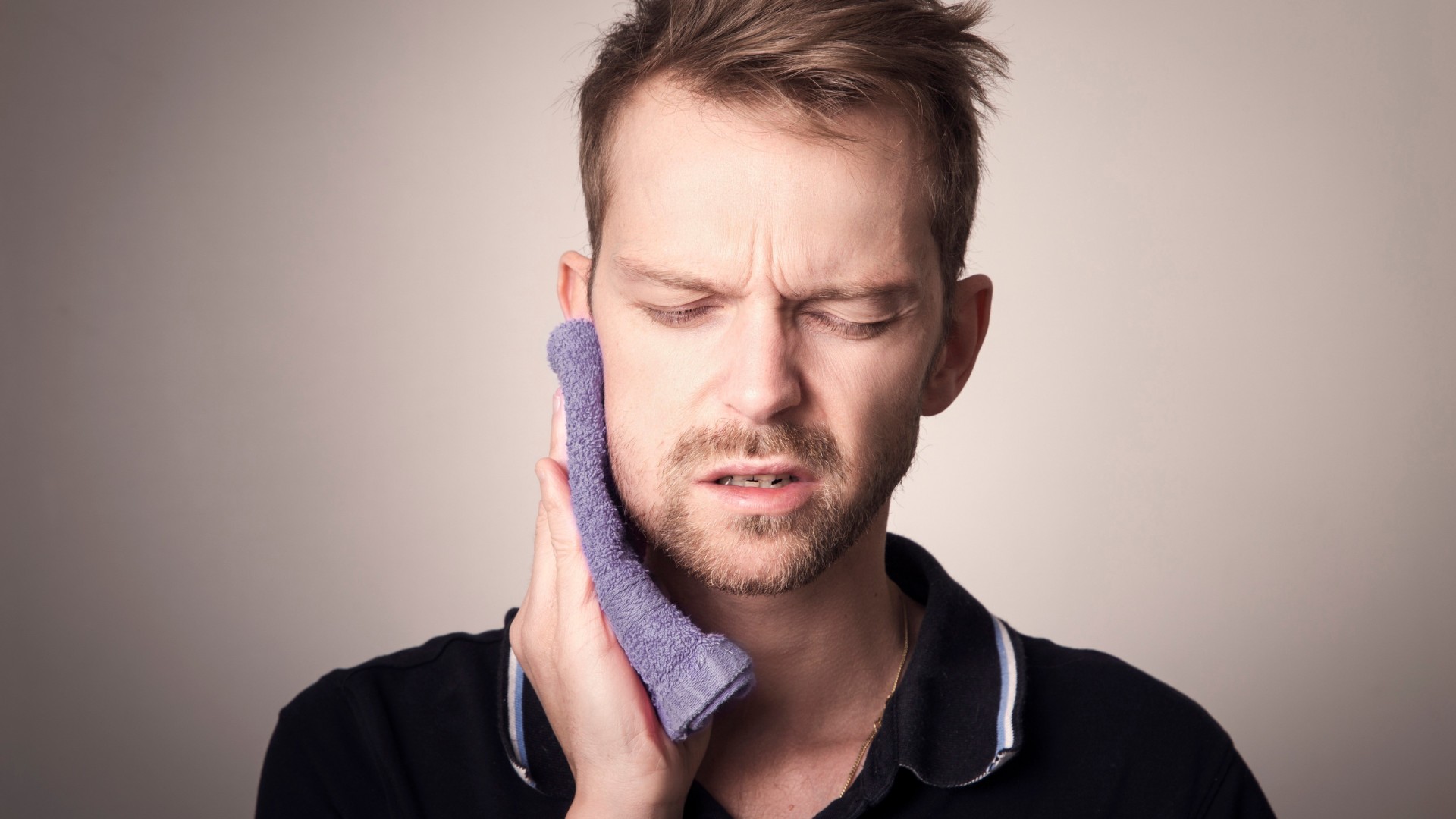
Table of Contents
Have you ever experienced a throbbing headache followed by a toothache, but your dentist says nothing is wrong with your teeth? You might think a headache can cause a toothache, but most of the time, a headache can cause pain in your teeth, neck, and shoulder. This kind of pain is known as referred pain.
ANF Therapy®, also known as Amino Neuro Frequency Therapy, is a frequency-based approach that utilizes wearable devices, ANF Devices, which are applied directly to the skin. These devices are configured with bio-coded frequencies, aiming to support the natural healing mechanisms and promote physiological balance.
In this blog, you will learn about the science behind how headaches cause toothaches, the types of headaches that are linked with dental pain, and how ANF Therapy® can help.
Can a headache really cause a toothache?
Yes! Headaches can cause pain in your teeth. This phenomenon is known as referred pain, where pain in one part of your body is experienced in other parts of your body. However, the most common cause of headaches, followed by toothache, is irritation of the trigeminal nerve, which is responsible for the sensation in your face, teeth, and jaw.
When the trigeminal nerve is irritated during a headache, specifically in migraine, tension headache, or cluster headache, the pain radiates into your tooth because of the common nerve supply, and you feel it just like a toothache.

Types of headaches that cause toothache:
Different types of headaches are linked to toothache. These include the following:
1-Migraine
Migraine is characterised by severe pulsating pain in one side of your head. It can also cause facial and dental pain, particularly in your upper jaw. People usually report that they are feeling pain in their face, jaw, and dental areas, but if your dentists find nothing specific to your teeth, it might be due to migraines running in your head. The symptoms of migraine include:
- Pulsating tooth pain on one side of your mouth (unilateral)
- Sensitivity to light or sound
- Nausea
- Facial pain
2. Sinus Headaches
Sinuses are located in your face that help humidify and warm the air in your breath. When your sinuses become congested or infected, it puts pressure on the upper jaw area and mimics a toothache. This pain usually involves upper back teeth that are very close to the sinus. The symptoms of sinus-related toothache include the following:
- Pain in multiple upper teeth
- Worsening pain when bending forward
- Nasal congestion or post-nasal drip
- Pain behind the eyes

3. Tension Headache and Jaw Pain
Chronic stress and poor body posture are the most common causes of tension-type headaches, which tighten the muscles in the head, neck, and jaw. Due to this, pain radiates to the teeth, particularly during grinding or clenching activity. The signs of a tension headache include the following.
- The feeling of band-like pressure around the head
- Soreness in the jaw and temples
- Tooth sensitivity without dental issues
- Tensed head muscle
4. TMJ and Headaches
Your teeth are located inside your jaw. The temporomandibular joint (TMJ) connects your jaw to your skull. When this joint is dislocated, misaligned, or overused, it can cause both headaches and facial pain that mimics tooth pain. The signs of TMJ-associated pain include the following:
- Clicking or popping in the jaw
- Pain near the ear or temples
- Pain that worsens when chewing or clenching your teeth (bruxism)
5. Trigeminal Neuralgia
The trigeminal nerve supplies sensation to your face, teeth, and jaw. In rare cases, irritation of the trigeminal nerve causes sudden, severe headaches characterised by sharp, electric shock-like pain in your teeth.
Difference between dental pain and neurological pain (Dental vs Neurological).
Feature | Dental pain | Neurological pain |
Source of pain | Affected tooth or gum | Nerves or muscles are involved |
Nature of pain | Constant throbbing pain | Shock-like pain, burning pain, and radiating |
Trigger | Eating, drinking, and clenching | Light, sound, and stress |
Duration of pain | Remain continuous until treatment | Episodic and fluctuating |
How does ANF Therapy® manage headaches?
ANF Therapy® or Amino Neuro Frequency Therapy is a frequency-based approach that is applied by trained healthcare professionals to aid in the treatment, prevention, and relief of musculoskeletal injuries, as well as related issues such as pain, swelling, discomfort, and limited mobility. It is also designed for use in physical rehabilitation, neuromusculoskeletal care, and supportive treatment settings.
Expected outcome:
According to Dr. Mikel H-G Hoff, most patients experience significant relief from their headaches after applying ANF Devices in the first session. However, the outcomes vary from person to person, depending on the disease severity.
Start your journey with ANF Therapy®:
ANF Therapy® is the newest frequency-based approach. If you are suffering from chronic headaches followed by a toothache, consult an ANF Practitioner or find an ANF Therapist at https://www.anftherapy.com/find-clinic/ to discuss how ANF Therapy®can help.
If you’re a healthcare practitioner and want to enhance your clinical skills with frequency medicine, learn more about the ANF Therapy® and ANF Clinical education program by visiting www.anfacademy.com.
FAQs:
Why do toothaches hurt more at night?
When you lie down, the circulation of blood to your head is increased. This puts pressure on your teeth, resulting in more severe pain than before.
Why do toothaches cause headaches?
There is a connection between the nerves of the teeth and the head. Due to this, tooth pain may radiate to the head, resulting in headaches.
About ANF Therapy®️
ANF Therapy®️ uses circular ANF Devices, which are applied directly on the skin after palpation and assessment by a trained ANF Therapist following the ANF Therapy®️ Method, Patented Model no. U202030252, ES1259974.
The ANF Therapy®️ purpose is the alleviation of injury and pain within minutes.
Our aim is that the patient experiences a reduction of pain and swelling, an increase in range of motion, and an improvement in quality of life related to health. Non-transdermal, non-invasive device, NO needles or chemicals are used.
Do you need help with your health issues? Have you been experiencing toothache caused by headache?
Contact us, and we will explain how we can help you!

